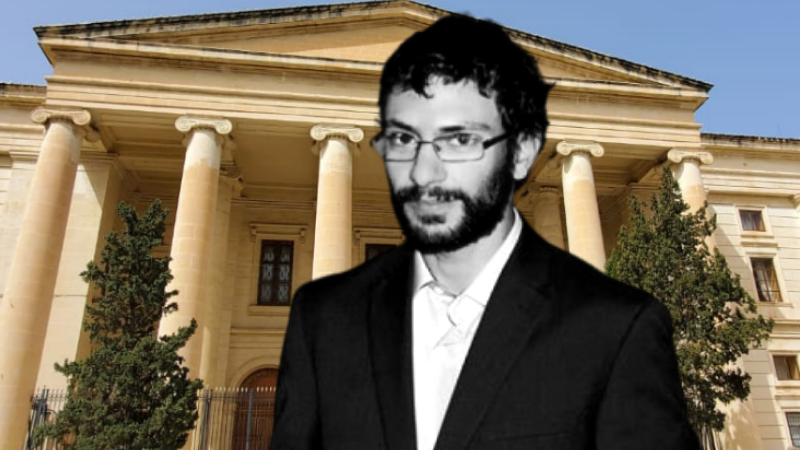The case in court against Maltese author Mark Camilleri, filed by Labour MP Rosianne Cutajar, has put into sharp focus questions on whether criminal libel could be returning in a different guise in an attempt to silence criticism of those in power.
On Thursday, Camilleri, who has been living in another country, was summoned to the next court session under arrest. While this is a common order when the accused fails to turn up to a court sitting, the harassment case has raised a number of questions.
The former chairman, and author of the book ‘A Rent Seeker’s Paradise’ – a damning indictment of the Joseph Muscat administration – is in court after a criminal complaint filed by MP Rosianne Cutajar concerning charges of harassment over alleged repeated online insults and threats aimed at her.
The criminal complaint came after Camilleri was also sued for libel by Cutajar. Camilleri had written about the deal on a property Cutajar struck with the man accused of Daphne Caruana Galizia’s murder, Yorgen Fenech, while she was allegedly having an affair with him. She faced rebuke at the Parliamentary Assembly of the Council of Europe for her behaviour.
Cutajar had said she felt threatened and insulted by tweets Camilleri wrote in her regard.
Criminal libel was erased from Maltese law in 2018 with a revision of the Media and Defamation Bill, some six months after Caruana Galizia was assassinated and the spotlight was on press freedom in Malta. The removal of criminal libel from Maltese law was a reform that government ministers would promptly point to when questioned about developments in press freedom.
Yet it seems those in power are finding new ways of filing criminal cases against authors and journalists.
Speaking to The Shift, lawyer Andrew Borg Cardona noted how back when Minister Owen Bonnici was justice minister, he “had boasted that the government had removed criminal libel from the statute books.”
“That was not a bad thing, as far as it goes… but it begs the question: if the subject of some scurrilous (or not) piece of journalism feels harassed or threatened by it and invokes the criminal law, is this not tantamount to having criminal libel resurrected?” he asked.
Camilleri’s case shed new light on concerns that came to light in February after the government had presented the Cyberbullying Bill in parliament. Lawyer and former Opposition MP Therese Comodini Cachia had warned about the possibility of using cyberbullying charges as a threat to journalism.
In comments to The Shift on Friday, Comodini Cachia stressed that the threat of instituting criminal proceedings alone is itself at times sufficient to have a chilling effect.
“Where such prosecutions are instituted on the claim of a person in public life against a person who is a journalist, activist, author or other media actor, then this raises several questions as to whether it is being used in ways that violate freedom of expression,” she said.
“Persons in public life are expected to use restraint in the use of criminal proceedings against those holding them to account or participating in public debate. The limits of admissible criticism towards a public figure are wider as that public person exposes himself to public scrutiny and consequently must display a particularly high degree of tolerance. Those in public life are to expect scrutiny and debate of their statements and actions,” she said.
Comodini Cachia explained that politicians should also enjoy protection of their reputation, but “the use of criminal action against those holding them to account needs to be weighed in relation to the interests of open debate of issues of public interest, of political issues and such discourse which is critical of their statements or actions.”
“This applies to all actions instituted by or at the request of public persons against those involved in public debate, but where those actions are of a criminal character then they appear more repugnant to the tolerance and debate that a democracy needs to survive and develop,” she said.
Another lawyer consulted by The Shift confirmed the concerns: “The net result is that while Malta decriminalised libel, cyberbullying or harassment could become a new route for stifling freedom of expression. This is not merely theoretical, in the Philippines and certain Caribbean nations, cyber harassment and bullying legislation is actively being used to harass and shut down journalists and activists.”
Following the court order, Camilleri said that he plans to return to Malta for the coming sitting. He said the case was a perversion of justice:
“What is exceptionally problematic in all of this is that the police chose to accept taking in Rosianne’s criminal complaint knowing very well that my claims are true because they also have the same evidence that I do. The police and the Attorney General have the discretion in interpreting whether a crime has been committed and with regard to Rosianne’s criminal complaint, and they seem to agree with her that I committed a crime for calling her out to resign for her corruption. Here is why this is a perversion of justice.”













When Chris Cardona did turn not up for his libel case against Daphne Caruana Galizia , he was not arrested to make sure he turns up. There is more than Monkey Business in the Courts.
Cutajar’s approach ultra loathesome.